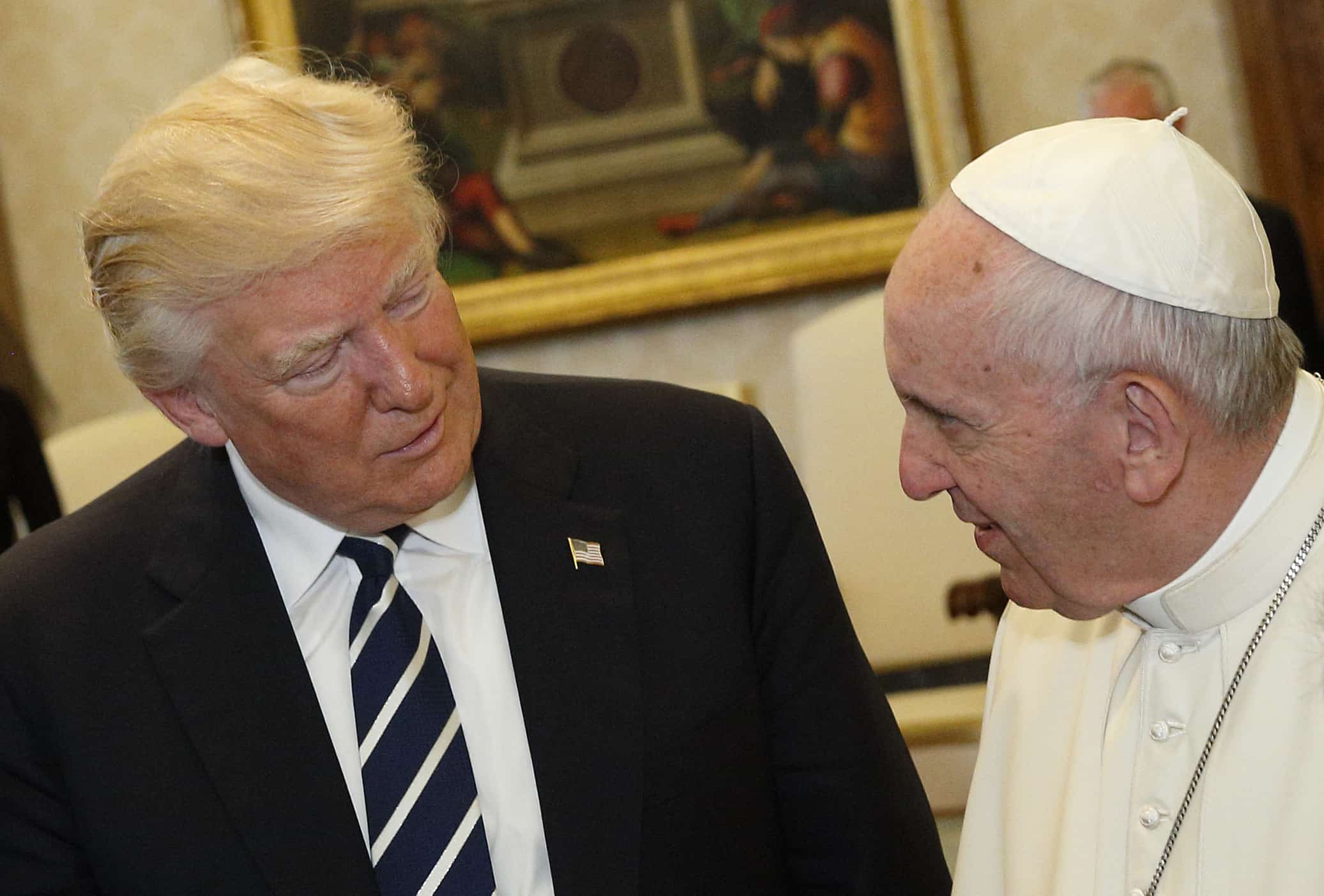In a recent column I wrote about the difficulties of being a religious voter on the American Left. As many readers reminded me, however, the GOP has also not always lived up to its promises to such voters. That does not excuse the Democratic party, to be sure. But it’s worth asking: how did we get to a place where we’re questioning the Republican party’s seriousness about religion? The simplest answer is that the Republican party is no longer conservative.
In Yuval Levin’s book The Great Debate, he describes the conservatism of Edmund Burke as deeply rooted in the reality of social life: family, church and nation. That vision of reality, Levin argues, rests in a gratitude for the goodness of what has been passed down to the present, and a sense of responsibility for passing down that goodness to future generations. Conservatives like Burke, Levin argues, have a fundamentally Christian sense of human fallibility, but also a Christian hope that what is best in human community can be developed and preserved over time. This is not to say that liberals cannot be good Christians, of course, but only that Christianity lies at the heart of classical conservatism.
Where is this godly conservatism today? The answer to that question is best summed up in one of the saddest tweets of 2017:
The problem with conservatism is this: Ask 1,000 conservatives who Yuval Levin is. <20 have heard of him. But now they all know who Milo is.
— Jacob Lupfer (@jlupf) February 20, 2017
When one recalls the GOP of the Bush years, one imagines libertarians and neoconservatives: Ayn Rand and Henry Kissinger.1 When one thinks of the GOP of the current U.S. president, who has been a conservative for about as long as Bernie Sanders has been a Democrat, one sees economic protectionists and populists: Pat Buchanan and Huey Long. Still worse, one thinks of the “conservative” celebrity culture of Milo Yiannopoulos or Ann Coulter.
What you do not think of, however, are religiously-serious conservatives in the manner of Levin’s Burke. For all the talk of the “Religious Right,” religious conservatives have never been more than one element of the Republican party, and, for that matter, conservatives in general are increasingly a minority within their own party. This means that religious conservatives have often been held hostage by the GOP, delivering votes in exchange for unfulfilled promises. This dynamic was particularly on display in evangelical infighting over Donald Trump’s presidential bid.
But what is the GOP without religious conservatism? For one thing, too focused on economic issues, and often in hyper-individualistic terms. Levin notes that American conservatives tend to be individualistic in economic matters and more communitarian in social ones. It could be argued, as it was ably by the late Michael Novak, that under the right conditions the individualism of capitalism can in fact reinforce the critical social institutions that conservatives support, above all church and family. But it turns out that those “right conditions” include religion: without the religious conservatives’ impulse to value the common good, the GOP risks becoming as individualistic and hedonistic as it often criticizes the left for being, leaving behind the Gospel of Christ for the Gospel of Ayn Rand.
Additionally, a GOP without religious conservatism is prey to tribalism. This was nowhere on better display than in the recent debates on religious liberty. The travel ban on immigrants, for instance, was clearly anti-Muslim, and it was roundly condemned as such by numerous Christian leaders. And yet the Trump administration was shocked at the negative reaction to the ban: wasn’t America glad that Christians were not included in the ban? But what we all knew, and the Trump administration apparently did not, is that Christianity is not just an ethnic identity or a part of our national culture: it is a call to love that transcends all such particularities. We don’t win when the “other side” loses. There is no other side.
This tribalism, by the way, is characteristic of much of the GOP’s recent forays into the culture wars. On difficult and delicate issues – from abortion to gay marriage to transgender issues – the GOP has claimed to take up the mantle of religious truth, but it has too often advocated a truth without charity. The GOP has thus enabled Democrats to dismiss lazily as “bigotry” or “intolerance” any criticism of their social or cultural platform. The predictable result is that the national conversation on such issues continues to be vapid and fruitless, pitting a loveless, joyless “truth” against a “love” somehow beyond all truth.
***
Beyond these policy issues, however, a Republican party without God is darkly pessimistic, with no hope for the future. As Patrick Deneen notes, U.S. conservatism has generally been optimistic. Indeed, the very name “Moral Majority,” love it or hate it, at the very least asserted a basic optimism in the US, that America is fundamentally a “decent, faith-filled nation” whose “true nature” could “reassert itself” if only “the ejection of a corrupt leadership class” could be accomplished. But now, Deneen argues, “the mood has changed.”
Trump’s campaign capitalized on anger, frustration and even revenge. Trump did not create those passions, and many people are to blame for them. But Trump did choose to fuel and channel those negative emotions, in a complete rejection of the basic optimism of conservatism. Rather than following Reagan’s footsteps in proclaiming “It’s morning again in America,” Trump opted for something more like “Ask not for whom the bell tolls.”
Ironically, such pessimism would be perfectly at home in the radical leftist politics of the 1960s and ‘70s. But it has until now had no place in American conservatism. And it has no place in Christianity. A GOP that thought all would be lost if the wrong person were elected president in 2016 is not a party that can take the long view and be grateful for and confident in all the gifts of history’s God. And the voter taken in by that alarmism has forgotten the Christian faith in the God beyond history.
The GOP needs to become more Christian, and Christians need to become less Republican.
The latter may be the easier part. Christians should ultimately not be beholden to any political party, of course, a point that Rod Dreher made excellently in his recent book The Benedict Option. As Dreher insisted to me, if Christians are not just “the Republican party at prayer, they are also not “the Democratic party at prayer,” either. “We often don’t have the choice of voting for the perfect candidate, and so you vote for the lesser of two evils,” Dreher told me. “But that doesn’t mean we have to be satisfied with those choices.”
And if the GOP wants to advance its economic, social and cultural agenda, it needs to rediscover in its conservative and Christian roots new ways of reaching out to people who feel excluded by its vision of reality. But the party would then run the happy risk of actually expanding that vision. That is something everyone should desire.
- In fairness to him, Bush 43 in fact entered office with ambitious domestic policy plans he called “compassionate conservatism,” but they were derailed by the Iraq invasion. ↩


